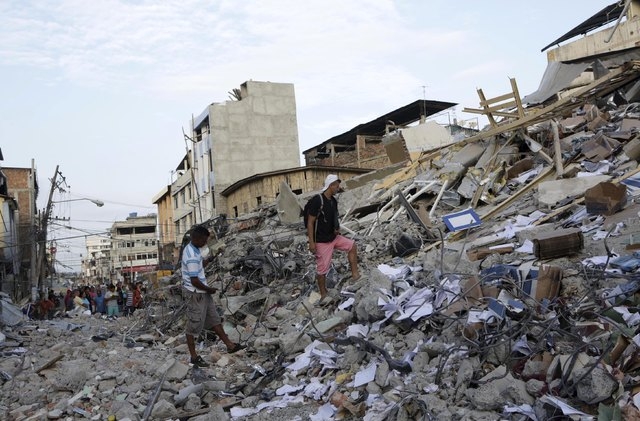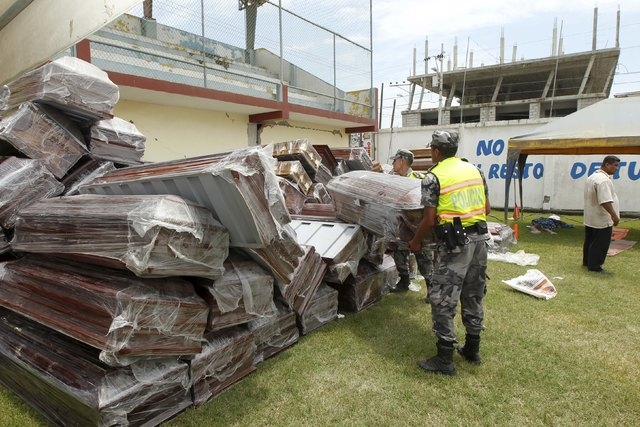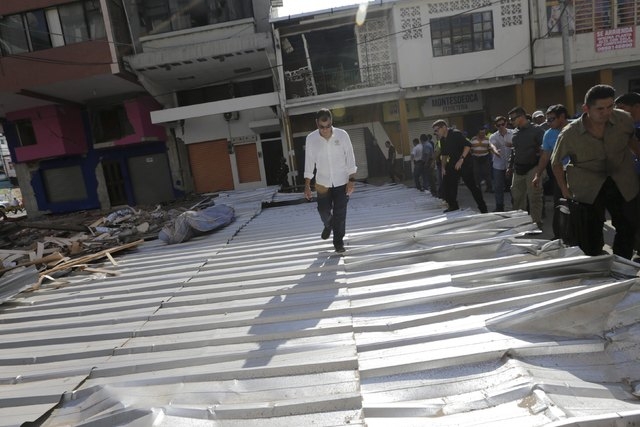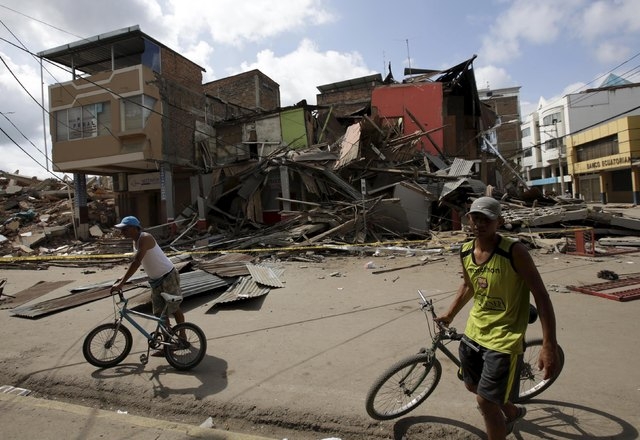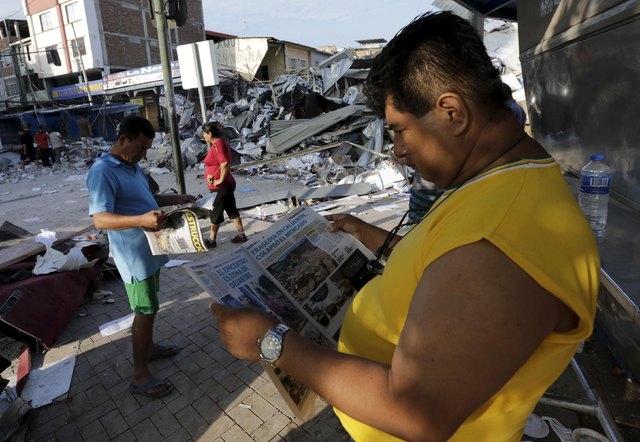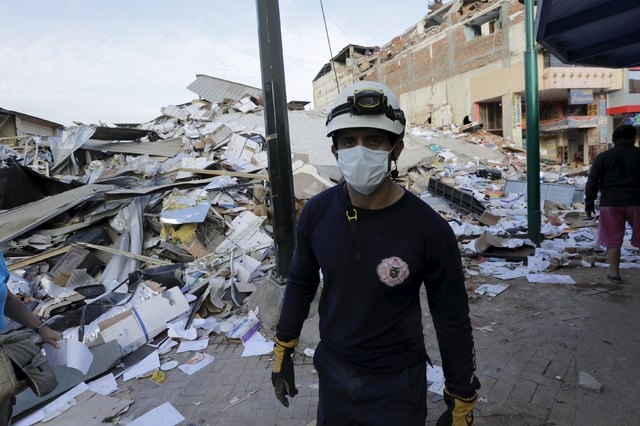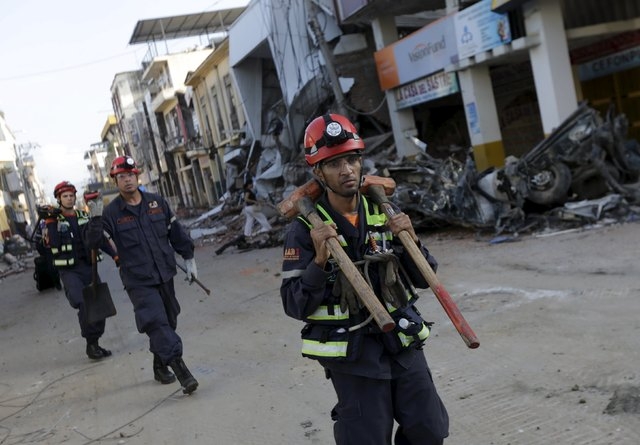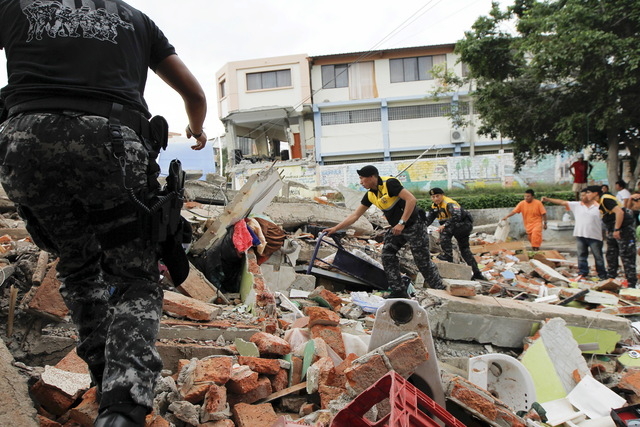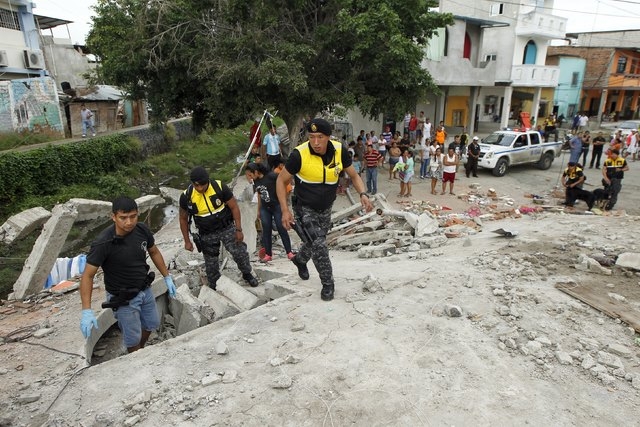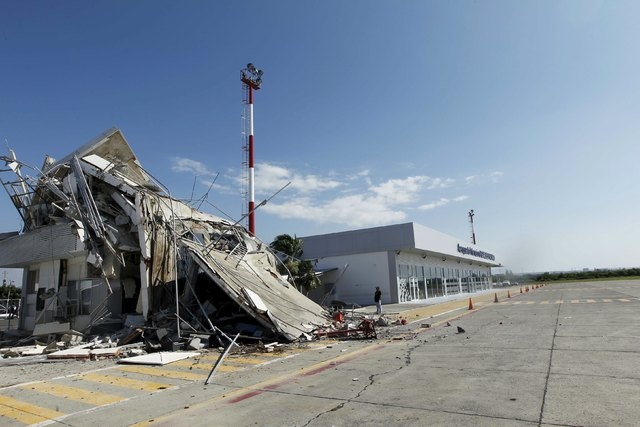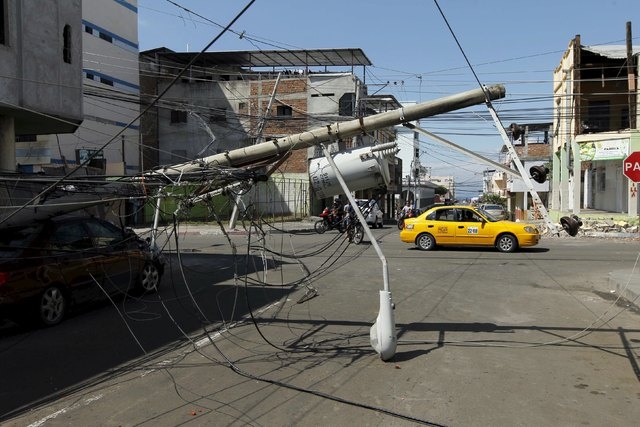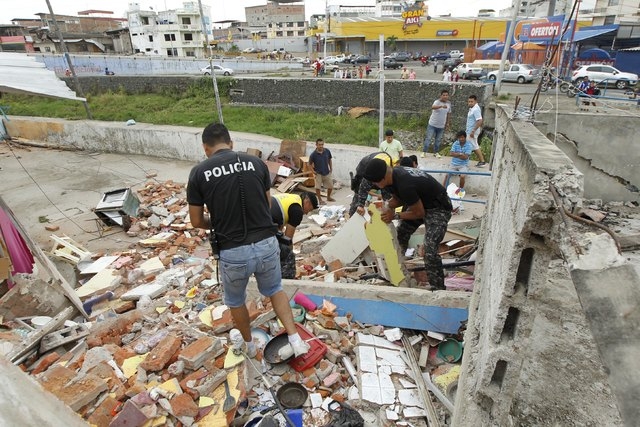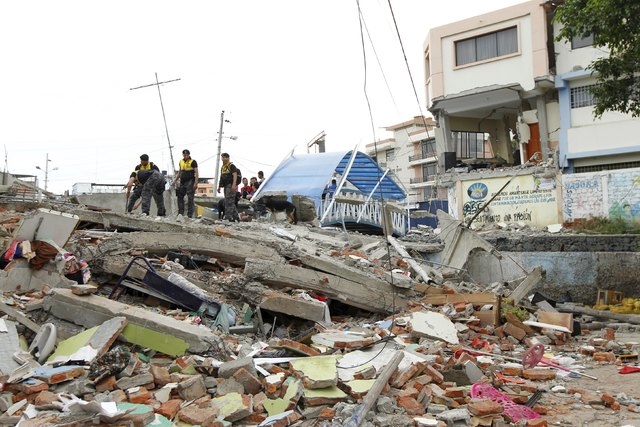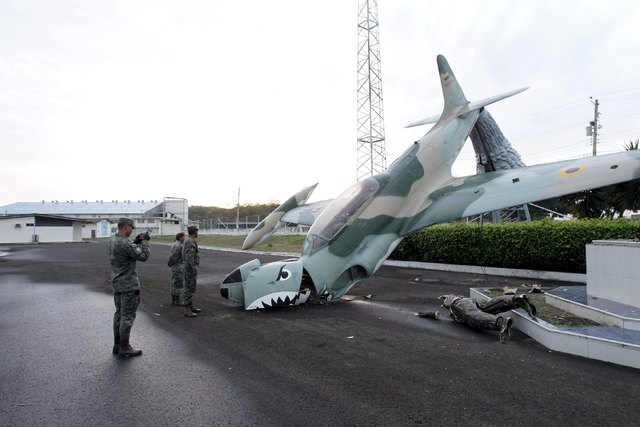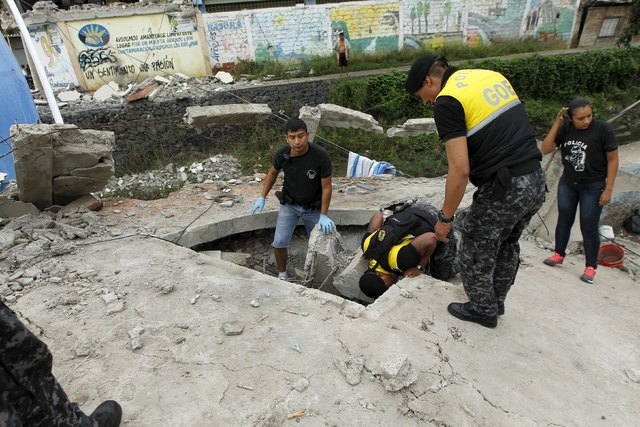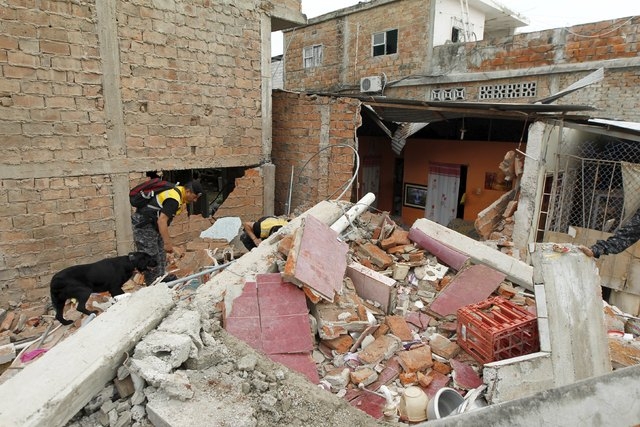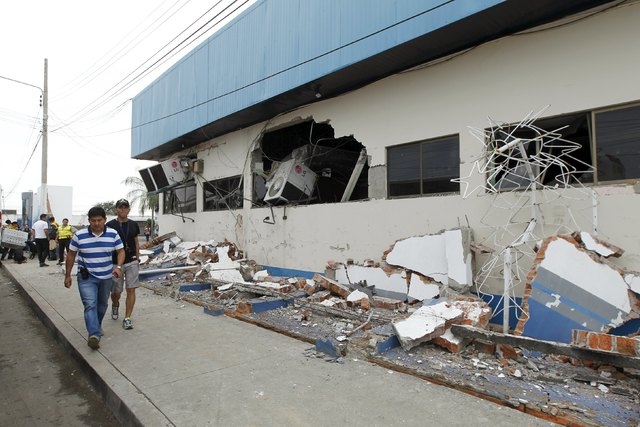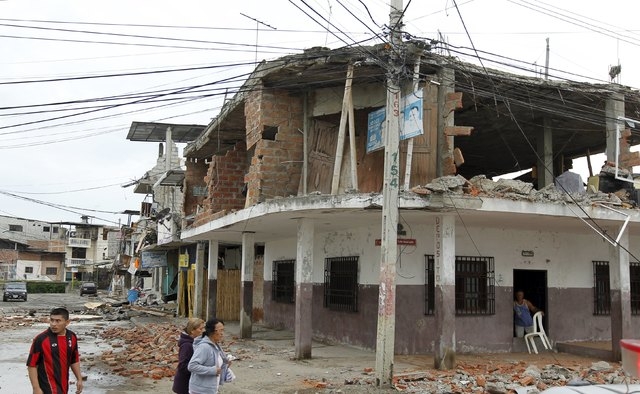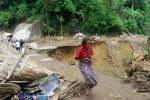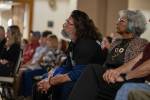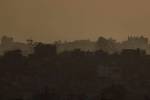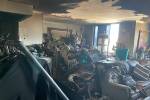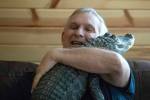1 American among 413 killed in Ecuador earthquake
One U.S. citizen is confirmed to have died in Saturday’s 7.8 magnitude earthquake in Ecuador, the U.S. State Department said on Monday.
“We are aware of the death of one U.S. citizen,” State Department spokesman John Kirby told reporters, saying U.S. and Ecuadorean authorities are seeking to verify the welfare and the whereabouts of all U.S. citizens in the area when the quake hit.
The death toll rose to 413 on Monday from the devastating earthquake that hit Ecuador at the weekend, as rescuers hunted for survivors, victims clamored for aid and looting broke out in the Andean nation’s shattered coastal region.
More than 2,000 people were injured in Saturday night’s 7.8 magnitude quake, which ripped apart buildings and roads and knocked out power along the Pacific coastline.
President Rafael Correa, giving the new tally of fatalities from the town of Portoviejo inside the disaster zone, told Reuters the number of dead had risen to 413 but feared that would rise further.
“Reconstruction will cost billions of dollars,” said Correa, as survivors begged him for water, adding later on Monday the impact on economic growth “could be huge.”
The normally upbeat socialist president looked deeply moved as he chatted with victims during a tour of the destroyed town in the South American OPEC nation, which was already suffering from the global slump in crude oil prices.
It has been decades since such a strong quake struck Ecuador. In 1979, a magnitude 7.7 quake killed at least 600 people and injured 20,000, according to the U.S. Geological Survey.
In other parts of Portoviejo, people stole clothes and shoes from wrecked buildings as police tried to control crowds. Armed men robbed two trucks carrying water, clothes and other basics to quake-hit beach locality Pedernales from the city of Guayaquil, authorities said, as fears of looting spread.
PLEAS FOR AID, SPORADIC LOOTING
The quake struck Saturday night along the northwest coast, while Correa was in Italy. Vice President Jorge Glas - a potential candidate to succeed Correa in elections next February - flew into the disaster zone within hours to oversee rescue and relief efforts.
But some survivors complained about lack of electricity and supplies, and aid had still not reached some areas. The number of injured rose to over 2,600.
Shaken Ecuadoreans lined up for food and blankets, slept in the rubble of their destroyed homes or congregated in the street after the most destructive quake since a 1979 magnitude 7.7 quake killed at least 600 people and injured 20,000, according to the U.S. Geological Survey.
Fears of looting spread as in Portoviejo people stole clothes and shoes from wrecked buildings and police tried to control crowds. A former social security building was ransacked for aluminum window frames and cables by people hoping to sell the materials.
“I have to take some advantage from this horrible tragedy. I need money to buy food. There’s no water, no light, and my house was destroyed,” said Jorge Espinel, 40, who works in the recycling business.
To the north in Pedernales, survivors curled up on mattresses or plastic chairs next to flattened homes. Overnight, soldiers and police had patrolled the hot, dark streets while rescuers searched for survivors.
Tents sprang up in the intact stadium to store bodies, treat the injured, and distribute water, food and blankets. Bruised and bandaged survivors wandered around while the more seriously injured were evacuated to hospitals.
GLOOM FOR ECONOMY
The quake is doubly disastrous for Ecuador as economic growth was already forecast near zero this year due to plunging oil income.
The energy industry appeared largely intact although the main refinery of Esmeraldas was closed as a precaution. However, exports of bananas, flowers, cocoa beans and fish could be slowed by ruined roads and port delays.
Michael Henderson, at risk consultancy Maplecroft, said Ecuador was less well equipped to recover than Chile, where a 2010 earthquake caused an estimated $30 billion in damage.
Some survivors complained about lack of electricity and supplies, and aid had still not reached some areas.
PRISONERS ON THE RUN
Over 300 aftershocks rattled survivors huddling in the streets, worried their already cracked homes could topple.
“We’re scared of being in the house,” said Yamil Faran, 47, in Portoviejo. “When … the aftershocks stop, we’re going to see if we can repair it.”
Some 130 inmates climbed over the collapsed walls of the town’s low-security El Rodeo prison, although more than 35 were recaptured.
On Monday, people swarmed into the middle of Portoviejo in search of materials of value among destroyed buildings.
About 13,500 security personnel were mobilized.
Some $600 million in credit from multilateral lenders was immediately activated for the emergency, the government said. Nearly 400 rescue workers flew in from various Latin American neighbors, along with 83 specialists from Switzerland and Spain.
CRUSHED BODIES
In many isolated villages or towns struck by the quake, survivors struggled without water, power, or transport. Rescue operations continued, but the sickly, sweet stench of death told them what they were most likely to find.
“There are bodies crushed in the wreckage and from the smell it’s obvious they are dead,” said army captain Marco Borja in the small tourist village of Canoa.
“Today we brought out between seven and eight bodies.”
INTERNATIONAL SUPPORT
The government has mobilized about 13,500 security personnel to the affected areas.
Nearly 400 rescue workers flew in from various Latin American neighbors, along with 83 specialists from Switzerland and Spain. Cuba was sending a team of doctors.
Two Canadians were among the dead. Jennifer Mawn, 38, and her 12-year-old son, Arthur, died when the roof of their coastal residence collapsed.
One U.S. citizen is also confirmed to have died in the quake, the State Department said on Monday. And Britain’s Guardian newspaper said Sister Clare Theresa Crockett, 33, a missionary nun from Derry in Northern Ireland, also died.
To get finance the costs of the emergency, some $600 million in credit from multilateral lenders was immediately activated, the government said.
But the disaster may also push Correa, a leftist, to seek help from the International Monetary Fund, consultancy Eurasia said.
“Such dynamics increase the odds of Correa turning to an IMF Program for support, an option he has so far resisted, and the earthquake could provide him with political cover to do so,” it said.



